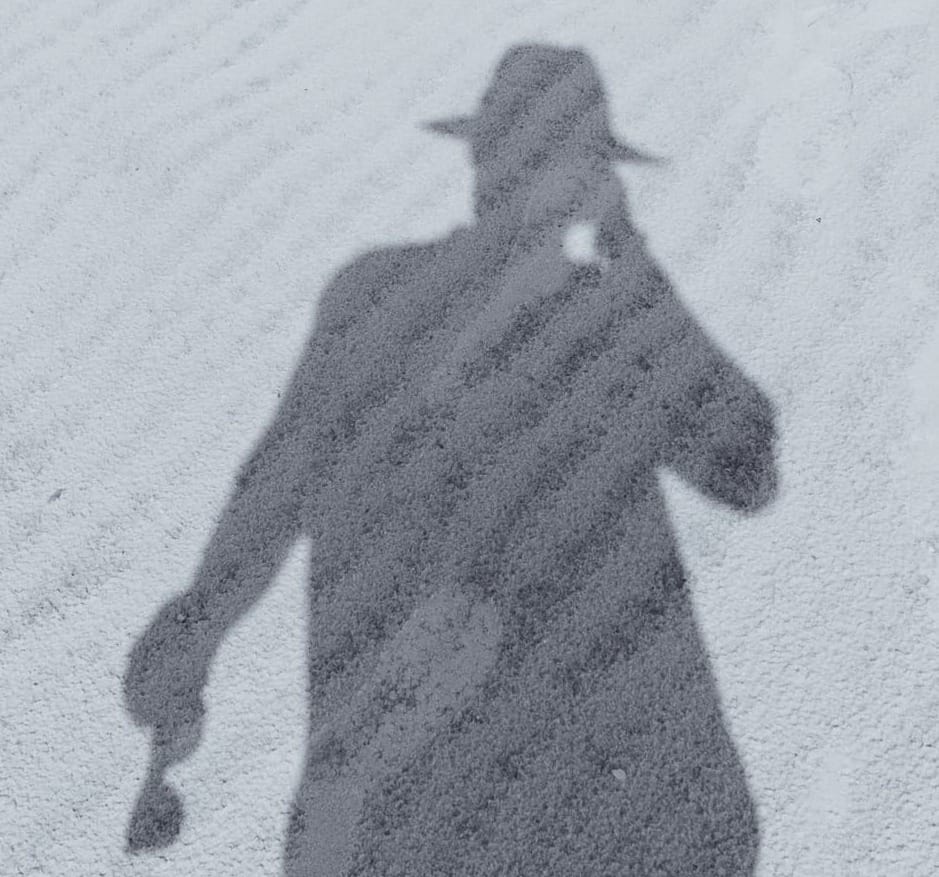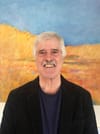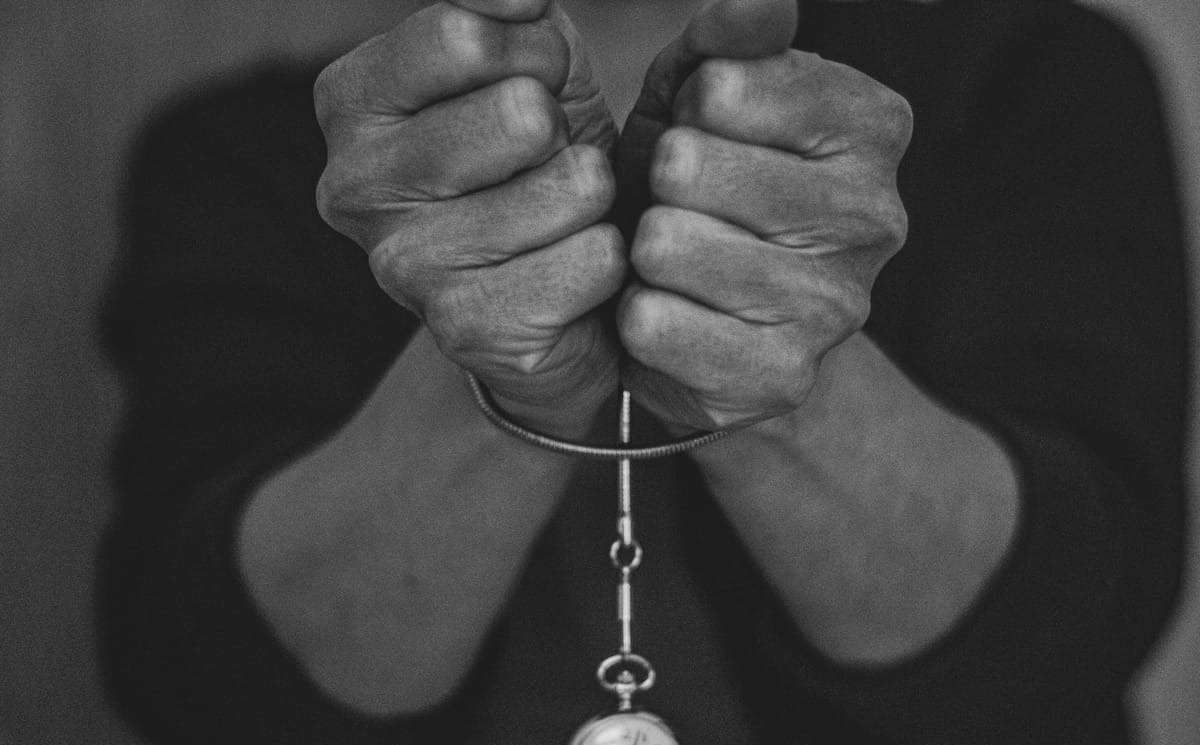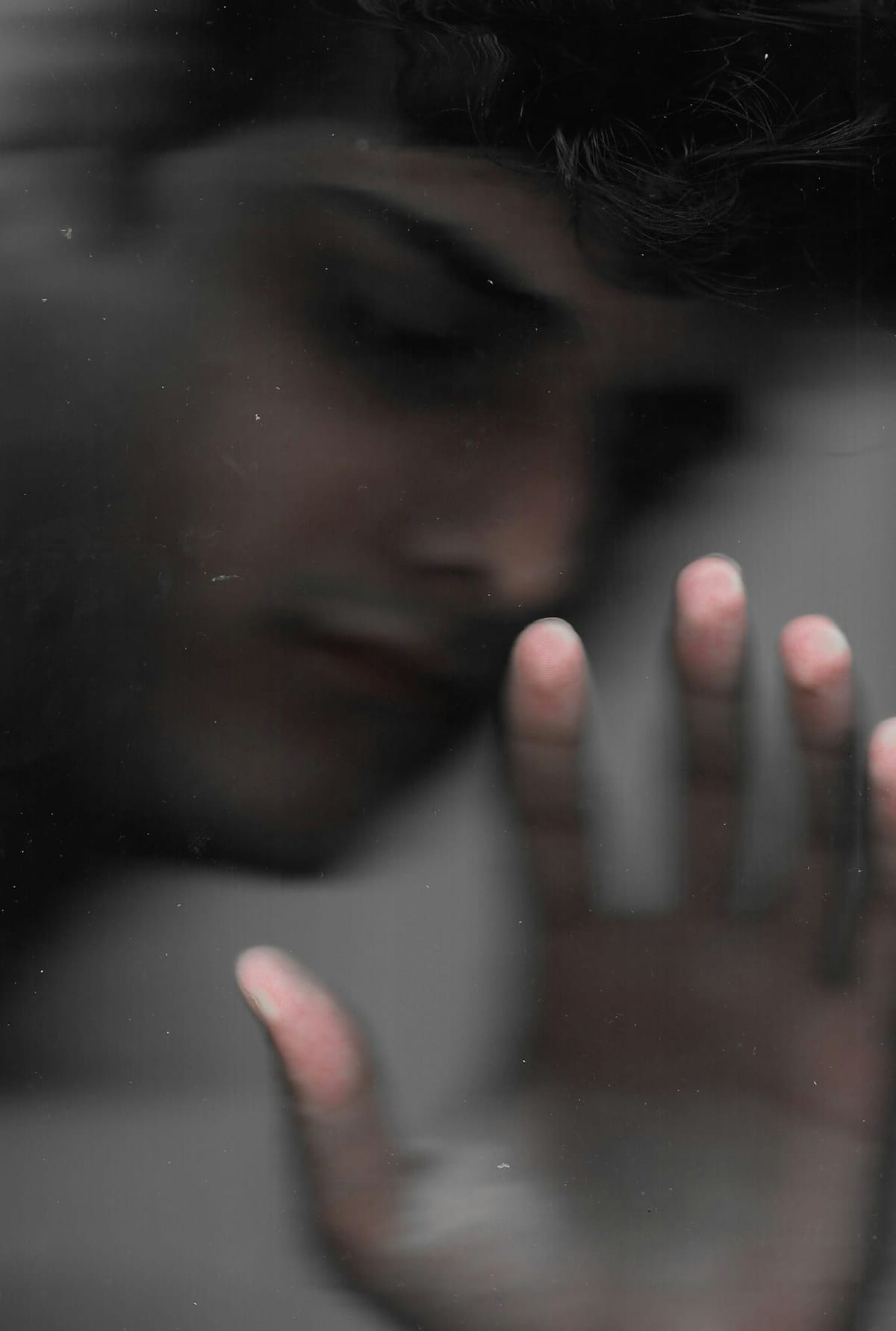When I was a young boy, I recall standing near my parents’ bedroom one morning. The house held a heavy stillness. Then the familiar click of my father’s lighter caught my attention, and I crept toward the doorway, holding my breath.
There he was, perched on the edge of the bed, cigarette smoke curling into slants of sunlight leaking through the blinds. At his feet sat a half-empty jug of whiskey. His head hung in his hands, and a long sigh escaped as he ran his fingers through his close-cropped, salt-and-pepper hair. I stood and watched him for a minute or more, my eyes drawn to the tattoo on his right bicep—a blue snake with its forked tongue flicking out. He didn’t notice me, which was fine. I’d learned by then that when it came to my father, it was a far better thing to go unnoticed.
Though my four-year-old mind was unable to comprehend the depth of my father’s despair, his darkness, I could feel it—a thick and palpable entity that never strayed far from us, even in the best of times. I was deeply afraid of it. Slipping quietly away, I prayed that whatever it was that made Tommy Tommy would never come for me.
Alas, my childhood prayer went unanswered. The chains of generational trauma possessed an unyielding strength I couldn’t break and my father didn’t care enough to try. What afflicted him came for me. I developed PTSD and with it many of the various symptoms and emotions that accompany the diagnosis: avoidance, guilt, shame, hypervigilance, rage, depression and anxiety. Consequently, I started self-medicating at a young age and developed alcoholism and drug addiction by my late teens
Of all the negatives that come with trauma, the biggest loss was my self-esteem. I felt worthless and self-loathing. Self-esteem is the sense of self-worth that helps us navigate the world with confidence. When it’s stripped away—by trauma, addiction, or betrayal—everything else begins to fall apart. I did poorly in school and I didn’t just get an F, I was an F. My moods swung widely, anxious and withdrawn, to rage followed by sulking depressions.
Sadly, my childhood wasn’t unique. Many children growing up in homes like mine face similar struggles. Studies show that 38% of children in addicted homes suffer emotional abuse, and 36% experience physical abuse. These statistics reflect the reality I lived every day—anger, neglect, and a constant sense of instability.
Suffering from PTSD means it’s significantly more likely that sufferers will develop health issues, addictions, anxiety, depression and interpersonal problems during their lifetimes. I never felt equal to, always less than. Problems were never solvable just opportunities to fail.
When I was twenty-three my father died and I inherited some money left to me by my grandfather. I used it to dive head-long into my addictions. One way that lack of self-esteem manifests itself is you lack agency. Other people’s wants and needs exceeded my own and I did what I could to please others before taking care of myself. The timing of inheriting money couldn’t have been worse. Being addicted and always concerned with making others happy led me into a “good-time-Charlie” existence where I became easily manipulated for loans and for getting other people and myself high.
My friend Will saw me in utilitarian ways. Will and I dealt and used cocaine together. He was connected, to some serious people, while I was at the bottom of the food chain. When the bigger players got busted due to a DEA wiretap, Will panicked. “I need to get out of here,” he told me one day. “If you can lend me three grand, I’ll pay you back as soon as I’m settled out west.”
My own finances at this point were crumbling and at first, I felt a desire to say no. But my friend was in trouble and I could help. I pushed my own worries to the side. “I can do it, Will. Give me a day or two.”
“That awesome, Old Boy! Thank-you so much! Don’t you worry I’ll pay you back. Count on it.” I basked in the warmth of Will’s approval, convinced he’d pay me back. We were best friends, after all.
I gave Will the money and he disappeared, completely, no contact whatsoever, no money, nothing. Years later, he reappeared in town. I was eager to see him and given the fact that I was now married with young kids, I was eager to get repaid. I invited Will to dinner and afterwards we repaired to the deck on my house to talk. It was an exercise in futility. Her denied ever borrowing any money. He said the guys who got busted viewed him as a “stand up guy,” though my definition of that is a guy who doesn’t buckle under pressure or run crying from town. He even had the gall to try to borrow more money.
In the end, I felt betrayed by someone I cared about and whom I trusted to care and respect me in return. I felt like such a fool for lending the money in the first place.. Now I was a fool with a knife in his back. Life is a stern and exacting teacher and this was the lesson learned: My money and other resources are for me and my family. My problems are mine and other people’s problems are theirs and for them to solve. There’s a very short list of people I’d lend money to now and those people are highly unlikely to ask as they are capable of taking care of themselves. My wife and I have a saying: Not my pig, not my farm and whenever I start to get over-involved in someone else’s affairs I think of the saying and draw back.
Self-esteem can be won back once lost but it takes a concentrated brick by brick effort. The first step for me was to put down the drugs and alcohol and all other self-destructive acts. I needed to understand that life is precious and good health is integral. Taking care of yourself every day is important, good sleep, good diet and exercise. Success is a collection of good habits. Providing for yourself is part of the equation. Keep what’s yours and don’t give yourself away like I did. Reclaiming self-esteem wasn’t easy, but it started with setting boundaries. I learned to say no, to prioritize myself and my family, and to stop seeking approval from people who didn’t truly care about me. I also started taking small, consistent actions that reinforced my sense of worth. It has made all the difference.






Comments